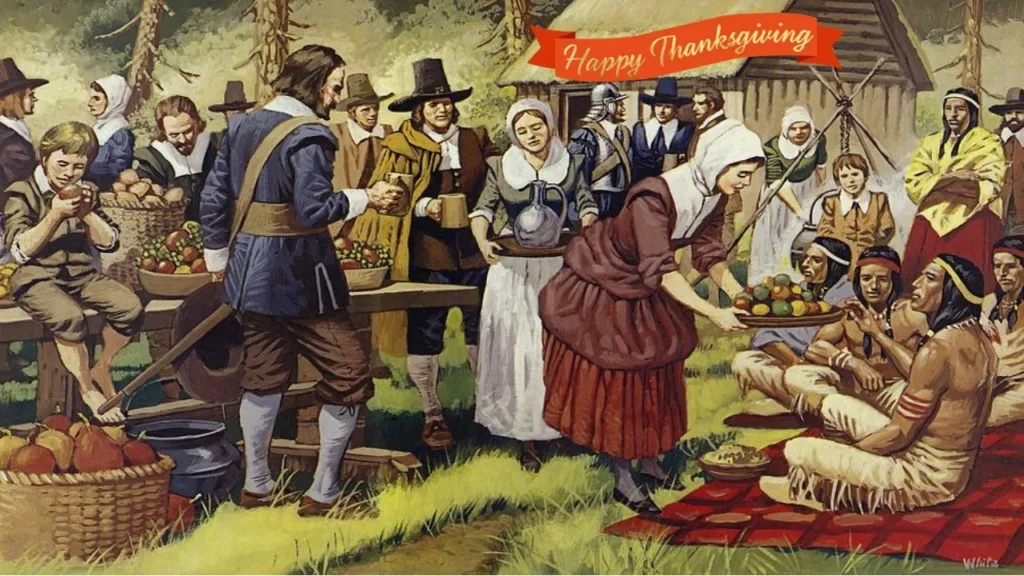In September 1620, 102 pilgrims boarded the Mayflower in Plymouth, England, on a treacherous and uncomfortable 66-day voyage to the “New World” for the promise of prosperity and land ownership. One month after anchoring near Cape Cod, they crossed through Massachusetts Bay and settled at present-day Plymouth, Massachusetts, to establish a village.
The settlement didn’t come without its challenges, as they were unprepared for the winter season and exposed to many diseases that only half survived to see spring. In March 1621, the remaining settlers moved ashore, where they were greeted in English by a Native American from the Abenaki tribe. A few days later, he returned with another Native American named Squanto from the Pawtuxet tribe. Squanto taught the pilgrims how to live off the land by growing corn, catching fish, and extracting sap from trees. Squanto forced the pilgrims into an alliance with the Wampanoag, a local tribe that was one of the first (if not the first) harmonies between European colonists and Native Americans.

In November 1621, Governor William Bradford Governor William Bradford organized a feast where the Pilgrims and Native Americans came together for what we now know as–The First Thanksgiving.
A Pilgrim chronicler named Edward Winslow wrote the following about the feast:
“Our harvest being gotten in, our governor sent four men on fowling, that so we might after a special manner rejoice together, after we had gathered the fruits of our labors; they four in one day killed as much fowl, as with a little help beside, served the Company almost a week, at which time amongst other Recreations, we exercised our Arms, many of the Indians coming amongst us, and amongst the rest their greatest king Massasoit, with some ninety men, whom for three days we entertained and feasted, and they went out and killed five Deer, which they brought to the Plantation and bestowed on our Governor, and upon the Captain and others. And although it be not always so plentiful, as it was at this time with us, yet by the goodness of God, we are so far from want, that we often wish you partakers of our plenty.”